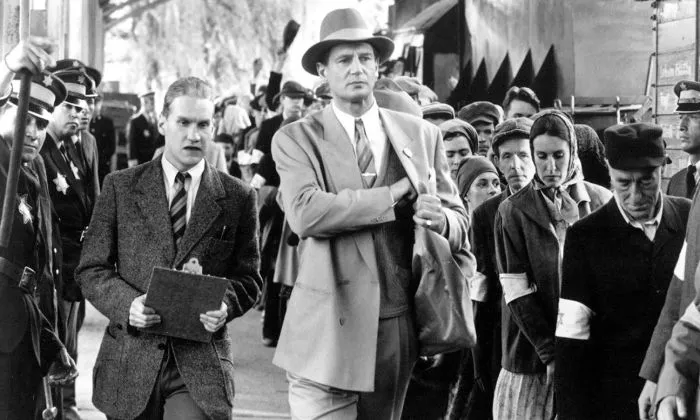Steven Spielberg’s masterpiece “Schindler’s List” (1993) is a profoundly moving film that explores themes of heroism, humanity, and moral courage against the backdrop of the Holocaust. The film tells the true story of Oskar Schindler, a German businessman who saved the lives of over a thousand Jewish refugees by employing them in his factories during World War II. In this article, we delve into the theme of heroism as portrayed in “Schindler’s List” and examine how individuals like Oskar Schindler demonstrated extraordinary bravery and compassion in the face of unimaginable evil.
Introduction to Heroism
Heroism in “Schindler’s List” goes beyond traditional acts of valor on the battlefield. It encompasses moral courage, empathy, and selflessness—qualities exemplified by Oskar Schindler and others who risked their lives to protect innocent individuals from persecution and extermination.
Oskar Schindler: The Reluctant Hero
Oskar Schindler, portrayed by Liam Neeson, is the central figure of heroism in the film. Initially motivated by profit and opportunism, Schindler gradually undergoes a transformation as he witnesses the atrocities committed against the Jewish population. He uses his position and resources to shelter his Jewish workers, ultimately employing them in his factories to ensure their survival.
Acts of Compassion
Schindler’s heroism is characterized by acts of compassion and defiance against the Nazi regime. Despite operating within a system of oppression, he leverages his influence to protect his workers and shield them from deportation to concentration camps.
Personal Sacrifice
Schindler risks his own safety and financial security to save the lives of his workers. He bribes officials, provides essential supplies, and intervenes on behalf of his employees, demonstrating unwavering dedication and selflessness.
Moral Awakening
Schindler’s heroism is driven by a moral awakening—a realization of the gravity of the situation and his responsibility to act. His transformation from a pragmatic businessman to a righteous protector exemplifies the power of individual conscience in the face of collective horror.
Itzhak Stern: The Unsung Hero
Itzhak Stern, portrayed by Ben Kingsley, serves as Schindler’s loyal accountant and confidant. Stern plays a crucial role in Schindler’s efforts to save Jewish lives, using his organizational skills to compile and falsify lists of essential workers.
Quiet Resilience
Stern’s heroism is characterized by quiet resilience and resourcefulness. Despite the danger, he remains steadfast in his commitment to safeguarding lives and supporting Schindler’s humanitarian efforts.
Moral Guidance
Stern serves as a moral compass for Schindler, encouraging him to prioritize humanity over profit and guiding him through the complexities of navigating Nazi bureaucracy.
The Jewish Workers: Resilience and Survival
The Jewish workers employed by Schindler in his factories demonstrate remarkable courage and resilience in the face of persecution. Many risk their lives to work for Schindler, knowing that employment offers a chance of survival amidst the horrors of the Holocaust.
Acts of Defiance
The Jewish workers engage in acts of defiance and solidarity, supporting one another and maintaining their dignity amid dehumanizing conditions.
Collective Resistance
By working for Schindler, the Jewish workers engage in a form of collective resistance against Nazi oppression. Their resilience and determination contribute to the narrative of survival and hope in the darkest of times.
Spielberg’s Depiction of Heroism
Steven Spielberg’s direction in “Schindler’s List” underscores the moral complexity of heroism during the Holocaust. Through nuanced performances and meticulous storytelling, Spielberg highlights the ordinary individuals who became heroes through extraordinary acts of courage and compassion.
Humanizing Heroes
Spielberg humanizes the heroes of “Schindler’s List,” depicting their flaws, vulnerabilities, and internal struggles. This approach underscores the relatability and universal significance of their actions.
Ethical Dilemmas
The film confronts ethical dilemmas faced by individuals in extraordinary circumstances. Schindler’s moral journey reflects the complexities of navigating moral responsibility in the midst of systemic evil.
Legacy of Heroism
“Schindler’s List” leaves a profound legacy of heroism, reminding audiences of the enduring power of compassion and courage in the face of injustice.
Educational Impact
The film has been widely used as an educational tool to teach about the Holocaust and the moral lessons of heroism and resilience.
Moral Reflection
“Schindler’s List” prompts moral reflection on the responsibilities of individuals to confront injustice and protect human dignity.
Conclusion
In conclusion, “Schindler’s List” is a testament to the transformative power of heroism amidst the Holocaust. Through the characters of Oskar Schindler, Itzhak Stern, and the Jewish workers, the film celebrates the courage, resilience, and compassion of ordinary individuals who became heroes in extraordinary circumstances. Steven Spielberg’s masterful direction and the poignant performances of the cast elevate “Schindler’s List” into a timeless exploration of the moral imperatives of human decency and the enduring legacy of those who dared to defy evil. The film serves as a poignant reminder of the importance of empathy, solidarity, and moral courage in the face of oppression and tyranny.
Related Topics:
The Symbolism of the Girl in the Red Coat in “Schindler’s List”
Ralph Fiennes: Portraying a New Kind of Evil in “Schindler’s List”
Film Review: “Schindler’s List” (1993) Directed by Steven Spielberg

